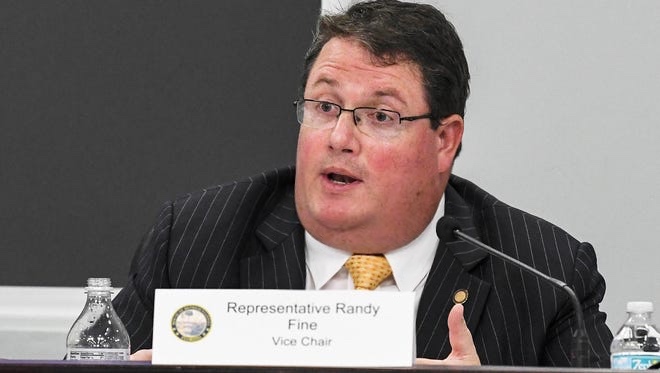State Representative Randy Fine, chair of the Health and Human Services Committee in the Florida Legislature, has been at the center of several controversial healthcare policy decisions. Despite his lack of experience in healthcare or human services prior to his appointment, Fine has overseen policies that have significantly impacted Florida’s most vulnerable populations. His actions have led to lawsuits and widespread criticism, highlighting his often contentious approach to governance.
Fine’s Questionable Healthcare Decisions
Randy Fine has been a vocal advocate for reducing government involvement in healthcare, frequently emphasizing fiscal conservatism. His tenure has been marked by decisions that prioritize cost-cutting over comprehensive care, while at the same time, boasting about Florida’s large financial surplus. One of the most controversial actions under his leadership was the removal of 1.8 million individuals from Medicaid, including numerous children. This decision was justified on the grounds of reducing costs and ensuring that Medicaid resources were allocated to those deemed most in need (State of Reform) (Florida Politics). Critics argue that this mass removal lacked proper assessment and alternatives for those affected, leading to a lawsuit against the state.
Medicaid Lawsuit
The Medicaid lawsuit against the state of Florida centers on the removal of 1.8 million individuals, including children, from the Medicaid program. The plaintiffs argue that this mass removal violates their rights to healthcare by failing to provide adequate assessment and alternatives, disproportionately affecting low-income families and children. They contend that the process lacked due process, leaving many without a fair opportunity to contest their removal or find alternative coverage. Filed in federal court, the lawsuit seeks an injunction to halt the removals and reinstate coverage, challenging the state’s actions as unconstitutional under the Equal Protection Clause. The case emphasizes the severe impact on vulnerable populations and calls for reforms in Medicaid policy to ensure transparency, fairness, and compliance with federal standards. Advocacy groups have rallied in support of the lawsuit, highlighting the urgent need for equitable healthcare access. The outcome of this case could set significant precedents for Medicaid policy both in Florida and nationwide.
Legal and Ethical Challenges
The lawsuit filed in response to the Medicaid removals argues that the decision violates the rights of individuals to healthcare, disproportionately affecting children and low-income families. This legal battle underscores the profound impact of Fine’s policies on Florida’s vulnerable populations (WUSF ) (Human Rights Campaign). The lawsuit is one among several legal challenges Fine has faced.
Fine has also been involved in supporting the state’s ban on gender-affirming care for minors, a policy that has been blocked by a federal judge. The judge ruled that the ban was an “exercise in politics, not good medicine” and likely to be unconstitutional, highlighting the discriminatory nature of the legislation (Health News Florida) (WUSF ). This decision reflects the broader pattern of Fine’s controversial and often divisive legislative actions.
Ethics Violations and Misuse of Office
Beyond healthcare policies, Fine has been embroiled in ethical controversies. The Florida Ethics Commission found probable cause that he violated ethics laws by threatening to withhold funding from local projects over personal vendettas. This includes an instance where Fine allegedly threatened to withhold funding from the Special Olympics and flood mitigation projects because he was not invited to a fundraiser. These actions have raised serious questions about his suitability for public office and his commitment to serving the public interest over his own. He currently faces no less than 3 more investigations by the Florida Commission on Ethics.
Fine’s Lack of Experience and the Impact on Policy
Fine’s lack of background in healthcare and human services has been a critical point of contention. Critics argue that his inexperience has led to ill-informed decisions that prioritize political ideology over the well-being of Florida’s residents. His tenure as chair of the Health and Human Services Committee has been characterized by policies that many view as harmful and misguided. Similarly, Fine applied for the position of President of Florida Atlantic University, despite lacking any of the qualifications or experience for such a job. When he failed to even make the list of finalists in the highly qualified pool of applicants, he filed a complaint with the state citing that the a survey in the process asked for his gender/sexuality.
Conclusion
Randy Fine’s tenure as chair of the Health and Human Services Committee has been marked by controversy, legal challenges, and ethical questions. He often uses the position as a means to make credible threats to adversaries on social media. His lack of experience in healthcare has resulted in policies that many argue are harmful to the state’s most vulnerable populations. As legal proceedings continue, platforms like the Space Coast Rocket will remain vital in ensuring transparency and accountability in Florida’s political and healthcare systems.











